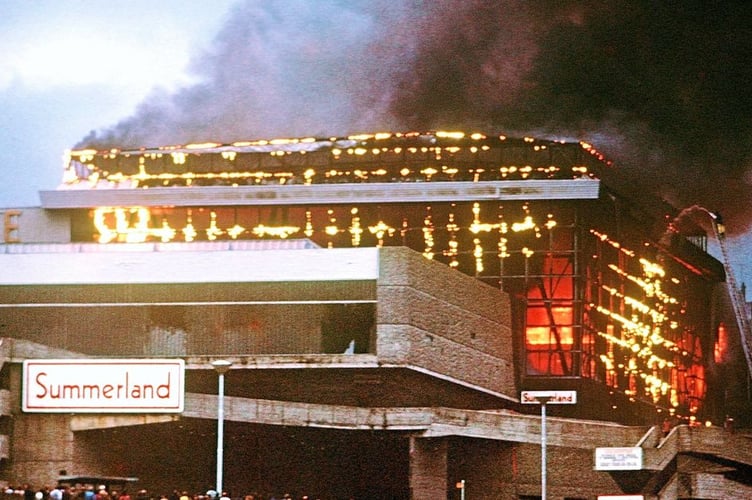A campaign group calling for a fresh inquest into the Summerland fire has launched a fundraising page to support its ongoing legal battle.
Fifty people lost their lives in the blaze at the Douglas leisure complex in 1973, one of the island’s worst-ever tragedies.
In August this year, Attorney General Walter Wannenburgh KC rejected calls for a new inquest following an application submitted in March 2025 by Phoenix Law on behalf of the Justice for Summerland campaign group. The group had argued that the original inquests held in 1974 were ‘ineffective and perfunctory’.
In a detailed response, Mr Wannenburgh confirmed he had considered the application under section 6 of the Coroners of Inquests Act 1987, which allows for a new inquest to be directed if there is reason to believe one is ‘desirable’. However, he concluded that he was unable to make such a determination, citing a lack of fresh evidence.
The Justice for Summerland campaign group says it will continue its fight but now needs additional funds to pursue legal action.
It launched a fundraising page on the CrowdJustice platform on Thursday and has already raised nearly £2,000 towards a £3,000 target.
Posting on social media, the group said: ‘In the months since we first asked the Isle of Man Attorney General for a new inquest into the Summerland fire tragedy, our request has been met with cold refusal, technical obstruction and delaying tactics.
‘We have been pushed deeper into the costly and complex Manx legal system in our pursuit of justice for the 50 lives lost. We are strong and determined to reach a truthful legacy for the Summerland victims. Today we launch a CrowdJustice fundraising page and respectfully ask for your support to help us.’
Phoenix Law has said it intends to challenge the Attorney General’s decision, claiming he applied the wrong legal test when rejecting calls for a new inquest.
In a letter of pre-action correspondence ahead of a possible petition of doleance, the firm stated: ‘The original inquests left bland and uninformative conclusions and returned findings incorrect in law. It is accepted by the AG that “the inquests were a brief and summary process”. These deficiencies could not, and have not, been remedied by concurrent or subsequent enquiries.’
The solicitors argue that, under Manx law, ordering a new inquest only has to be ‘desirable’, whereas under English law it must be ‘desirable and necessary’. They claim the Attorney General applied the English definition, which carries a higher threshold than that required in Manx law.
The letter also challenges the original verdict of ‘death by misadventure’, arguing that it implies victims should have foreseen the risks of visiting Summerland, which they say is inaccurate.
Phoenix Law believes there is reason to think a new inquest could result in a different verdict, with some families suggesting ‘accident’ or ‘unlawful killing’ would be more appropriate. The firm also argues that insufficient weight was given to the wishes of the victims’ relatives.
In his decision not to order new inquests, Mr Wannenburgh said the original proceedings did identify serious failings and where responsibility lay for those failings, revealing ‘the substantive truth of how the deceased came to lose their lives’.

.jpg?width=209&height=140&crop=209:145,smart&quality=75)


